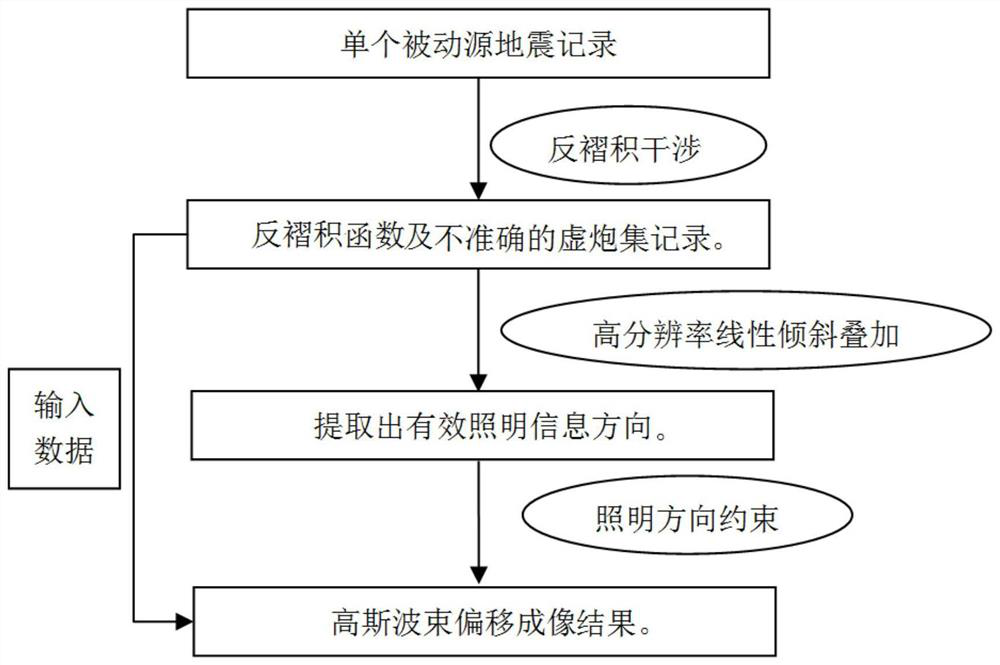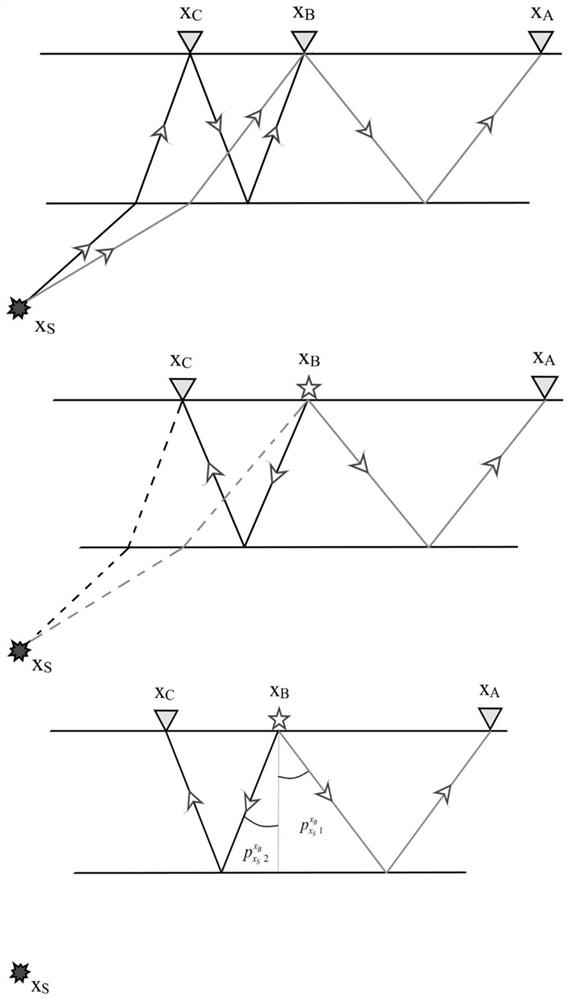A passive source interference migration imaging method and system based on illumination direction constraints
A technology of shifting imaging and lighting directions, applied in the direction of seismic signal receivers, etc., can solve the problems of inaccurate imaging results and unsatisfactory distribution of underground seismic sources, and achieve the effect of wide application range and cost saving
- Summary
- Abstract
- Description
- Claims
- Application Information
AI Technical Summary
Problems solved by technology
Method used
Image
Examples
Embodiment 1
[0047] like figure 1 As shown, it is a schematic flowchart of the passive source interference migration imaging method based on illumination direction constraint in Embodiment 1 of the present application, which is mainly composed of three steps: passive source interference, illumination information extraction, and illumination direction constraint migration imaging. The three steps of Embodiment 1 of the present application are described in detail below.
[0048] The first step is to interferometrically process the seismic records of the single-point pulse-type passive source to obtain the deconvolution function of the passive source. Through the deconvolution function, the inaccurate interference virtual shot set records can be obtained.
[0049] For pulsed passive sources, Wapenaar & Fokkema (2006) introduced that in the acoustic medium, the passive source is continuously uniformly distributed (each at x s , mark x in the first embodiment s characterizing passive sources)...
Embodiment 2
[0094] like image 3 As shown, it is a schematic structural diagram of a passive source interference migration imaging system based on illumination direction constraint in Embodiment 2 of the present application, including a deconvolution module, an illumination analysis module, and an imaging module.
[0095] Among them, the deconvolution module is used to interferometrically process the seismic records of the single-point pulse-type passive source to obtain the deconvolution function, and the deconvolution function is used to obtain the virtual shot set records; the illumination analysis module is used to analyze the deconvolution function. Perform tilt stacking processing, and extract the ray parameters corresponding to the peak at time zero to obtain the effective illumination information direction; the imaging module is used to perform offset imaging processing on the virtual shot set records according to the deconvolution function and the effective illumination informatio...
PUM
 Login to View More
Login to View More Abstract
Description
Claims
Application Information
 Login to View More
Login to View More - R&D
- Intellectual Property
- Life Sciences
- Materials
- Tech Scout
- Unparalleled Data Quality
- Higher Quality Content
- 60% Fewer Hallucinations
Browse by: Latest US Patents, China's latest patents, Technical Efficacy Thesaurus, Application Domain, Technology Topic, Popular Technical Reports.
© 2025 PatSnap. All rights reserved.Legal|Privacy policy|Modern Slavery Act Transparency Statement|Sitemap|About US| Contact US: help@patsnap.com



